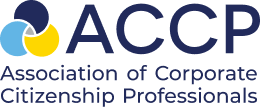Originally on the CAF America Blog
The China Overseas NGO Management Law, officially the “Law of the People’s Republic of China on Administration of Activities of Overseas Nongovernmental Organizations in the Mainland of China” went into effect January 1, 2017. The law requires that foreign NGOs coordinate their efforts with the Ministry of Public Security (MPS) and provides the framework within which they can continue their activities in the country through two ways: opening a representative office in China or applying for a temporary activity license.
When the law first came into effect there was a lack of detailed guidance on how to comply with the requirements of the law. This led to confusion amongst international philanthropists and grantmakers about how the new regulation would affect their charitable efforts within China. While the government has not yet officially clarified all details regarding implementation, over the past several months it has become clearer how NGOs can become compliant either by opening a representative office in China or applying for a temporary activity license. These two compliance measures enable foreign NGOs to plan their strategy for continuing their work in China. To date, some estimates from The Diplomat and The China NGO Project say that 90 to 250 foreign NGOs have successfully registered their offices in China. The number of temporary activity licenses that have been released is unclear, The China NGO Project estimates there have been less than 150 to date.
What is clear, however, is that donors from the United States can continue to support registered Chinese NGOs through intermediary organizations or through direct grantmaking if that is what they would prefer. Intermediary organizations may choose either option to fund charitable efforts in China, i.e. opening a representative office in the country or working with a “Chinese Partner Unit” and obtaining a temporary activity license. Both avenues are complicated and burdensome on the intermediary, however, a temporary license provides more flexibility for the donor.
When giving to an organization that has a representative office registered in China, the law requires that the registered office submit its entire activity plan by December 31 for the following year. This means that donors to this organization must know what exactly they want to fund a full year in advance and must provide this information to the registered office in due time.
The alternative, providing funding to an organization that works through temporary activity licenses, does not require this level of planning. The donor is therefore able to give at any time during the year, without the burden of 12 months of advance planning. Instead, while obtaining temporary activity licenses requires significant amount of resources (the prescribed documentation is extensive and requires close coordination with the “Chinese Partner Unit”), the temporary license allows for far more flexibility for both the Chinese Partner Unit and the donor.
The following steps should be taken by grantmakers and others applying for a temporary activity license. Please note that this list is not exhaustive, and it may differ based on region of China. Requirements may also change over time. Thus, it is important that you engage with your Chinese Partner Unit directly to ask them what is needed in order to apply before you begin this process.
- The funder should first obtain the following documents
- 501(c)(3) Determination Letter – English and Chinese Translation (may need an original copy from the IRS)
- Articles of Incorporation – English and Chinese Translation (these must be originals from your state of incorporation and require an apostille)
- A document certifying the source of and purpose of funds
- The grant agreement with the intended Chinese Partner Unit
- All of these documents, including an application for notarization, must be submitted to the Chinese Embassy for certification in-person. However, the Chinese Embassy will not certify the documents unless they have already been certified by the U.S. Department of State Authentications office.
- After approximately 10 days, the funder must return to pick up their notarized documents from the Embassy and proceed to coordinate with the Chinese Partner Unit to complete the license application process.
Given that each grant must go through a process similar to that described above, financial and staff costs are burdensome but not prohibitive.
Want more? Listen to our podcast to learn more about the China Overseas NGO Management Law
Learn more about CAF America here.
